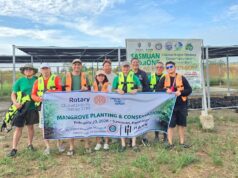Many new fees imposed by the Land Transportation Office, some with dubious legality, are creating a “lucrative downstream industry as a result of their privatized implementation,” Senate President Pro Tempore Ralph Recto said.
The Motor Vehicle Inspection System, he said, creates an P8 billion annual industry, and the mandatory enrollment in driving schools as a prerequisite in taking a driver’s license test has the potential of earning P7.5 billion a year for their owners.
Dalawa lang ‘yan out of the many, Recto said. “It is unfair and premature to call these ‘money heist’ ventures, because as I have said, the objectives are laudable, but the implementation is far from lovable.”
He cited the case of new rules in securing student permits and licenses for first-time drivers, which now require them to be a graduate of a theoretical and practical driving class from either private driving schools or in-house classes that LTO holds.
“The problem is konti lang naman ang sa LTO, so most are funneled to private driving academies, which have been mushrooming ever since the order was issued,” he said.
Recto said the law cited by LTO’s MC 2019-2176—making mandatory the submission of driving school certificate—does not call for such.
“Kahit halughugin mo ang RA 10930, there is no explicit provision authorizing the LTO to impose the driving school diploma rule. This is a case of an overreach,” Recto said.
“Ang importante, maipasa mo ang test sa isang paraan na tapat, walang daya, walang hocus-pocus,” he said.
Recto said theoretical driving course fees now average P2,875. The course is free if taken at LTO’s Driver’s Education Centers, and the cost for handouts is around P370.
In 2019, LTO issued 2,614,976 student permits. “If the same volume holds true in the coming years, then driving schools are looking at a P7.5 billion annual market.”
“Another sector in the LTO’s fee industry whose earnings have been turbocharged courtesy of new requirements is the MVIS,” he added.
“12.15 million na iba’t ibang uri ng sasakyan ang narehistro noong 2019. Batay sa bayad sa pag-inspeksyon ng lahat ng klase ng sasakyan, aabot ng P8.1 billion ang maaaring kitain ng private sector kada taon. At lalaki pa ‘yan habang dumarami ang mga sasakyan,” said Recto.
For a multi-point examination of a vehicle’s roadworthiness, an MVIS center charges P1,800 per car and SUV, P600 for motorcycles, and P300 for public utility vehicles.
He said the LTO should have “finessed the fees before dropping them like a bomb.”
“First, may isang suggestion na baka pwedeng i-pilot doon sa mga lumang sasakyan. Second, wala bang public alternative na mas mababa ang singil, pero may konting kita ang gobyernong baon sa utang?” he said.
“The profit and ROI for the private businesses that implement this government rule is high. So if government is willing to spend P357 billion for a subway that will bleed subsidies, then why can’t it modernize the LTO’s own inspection system so it can help defray the social cost of car ownership?” he said.
Recto has filed Senate Resolution No. 638, which seeks to suspend the operation of Private Motor Vehicle Inspection Centers nationwide until comprehensive public consultation has been conducted.
“At this time of the pandemic when the people are facing a health crisis and an economic downturn that is causing suffering, fear and anxiety, our people should not be further burdened by regulatory measures with questionable procedures, imposing exorbitant fees with doubtful effectiveness, and implemented without proper public consultation,” he said in the proposed resolution.
“We should find that sweet spot where we prevent unsafe vehicles on the road without the owners getting run over by high fees and fines,” Recto said.





